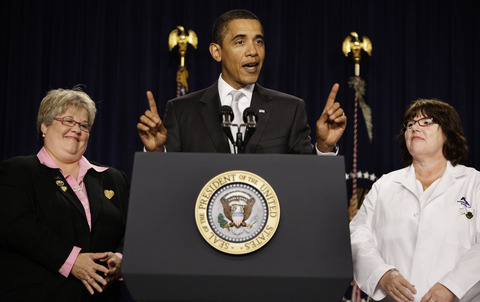Aye yei yei... Seriously? Capitalism is one of the primary forces behind innovation and your environmentalist/banking/economy statements don't hold up. If you honestly believe we live in a purely capiatalistic society within the US, you have been very deluded. The very nature of capitalism would predict success and failure, everyone can't be a success. I'm not sure how people keep throwing these banking fiascos out as any sort of 'proof' that capitalism doesn't work. If you get rid of the billions of dollars of governement aid and allow these banks to sink or swim we would be talking. Environment? I'm guessing that you're the same guy who complains about the gas prices while you fill up your tank, then later goes on to complain about oil drilling and tapping the oil reserves. You can't have your cake and eat it too...
I would love to cary on this discussion, but realistically it won't go anywhere because of an innate difference in our baseline ideals. If you want, I would be happy to entertain your ideas on health care reform via PM or you can post them here, but we are derailing this thread big time.
Yeah, the bail out was decidedly not capitalistic, but the subprime mortgage fiasco that set it off was. I'd like more explanation on how the environmental examples don't hold up. Seriously. I'd like details there, because that seems to me to be the biggest failure of capitalism in the last century.
For the record, I don't have a car, and I think gas prices should be significantly higher than they are. I'm really not that big of a hippy, but it's hard to deny that capitalism hasn't been disastrous for the environment in the developing world.
Here again is my primary objection to using a purely market-based approach towards health care:
The very nature of capitalism would predict success and failure, everyone can't be a success.
A truer statement has never been spoken. I just think that basic medical care is a fundamental responsibility of a democratic society, and that a capitalistic approach creates an unacceptable number of losers.
Here's a brief list of a few goals I think are important for health care reform in this country, in order of importance.
1. Everybody has access to some fundamental medical care, including emergency care, regardless of their financial status.
2. Medical coverage should not be linked to employment, and once insured, you should not be able to lose your coverage based on your current health.
3. Total cost of health care in this country needs to be stabilized. This probably comes from a number of fronts, but encouraging preventative care should be one aspect to this.
I think the 'fundamental benefits' should be defined on the federal level. Even more, though this is a bit federalist, I think that insurance company regulations should be done primarily at the federal level the encourage wider competition between health insurance agencies. Creating a health insurance exchange, similar to what the federal employees health benefits program does, would do a lot towards these goals.
There are other aspects of tax reform that should go into this as well. Right now, because employer health benefits are tax deductible, health insurance is already heavily subsidized in this country, only it's done a bit backwards. Because of tax brackets, the wealthy pay a lower marginal rate for their health insurance than do the poor. I think it makes sense to modify this to some extent.
Your free market approach obviously addresses the third of my goals, but I don't see how it reasonably takes care of the first two. If I'm just completely blind, so be it, but please inform me rather than just saying I'm wrong.
In addition to financial reform, I think there are things that should actually be done to reform medical care in this country, rather than just medical coverage. There are gross inefficiencies in the system that should be address, and I think physician incentives need to be changed.




 True, but that wasn't the point.
True, but that wasn't the point.